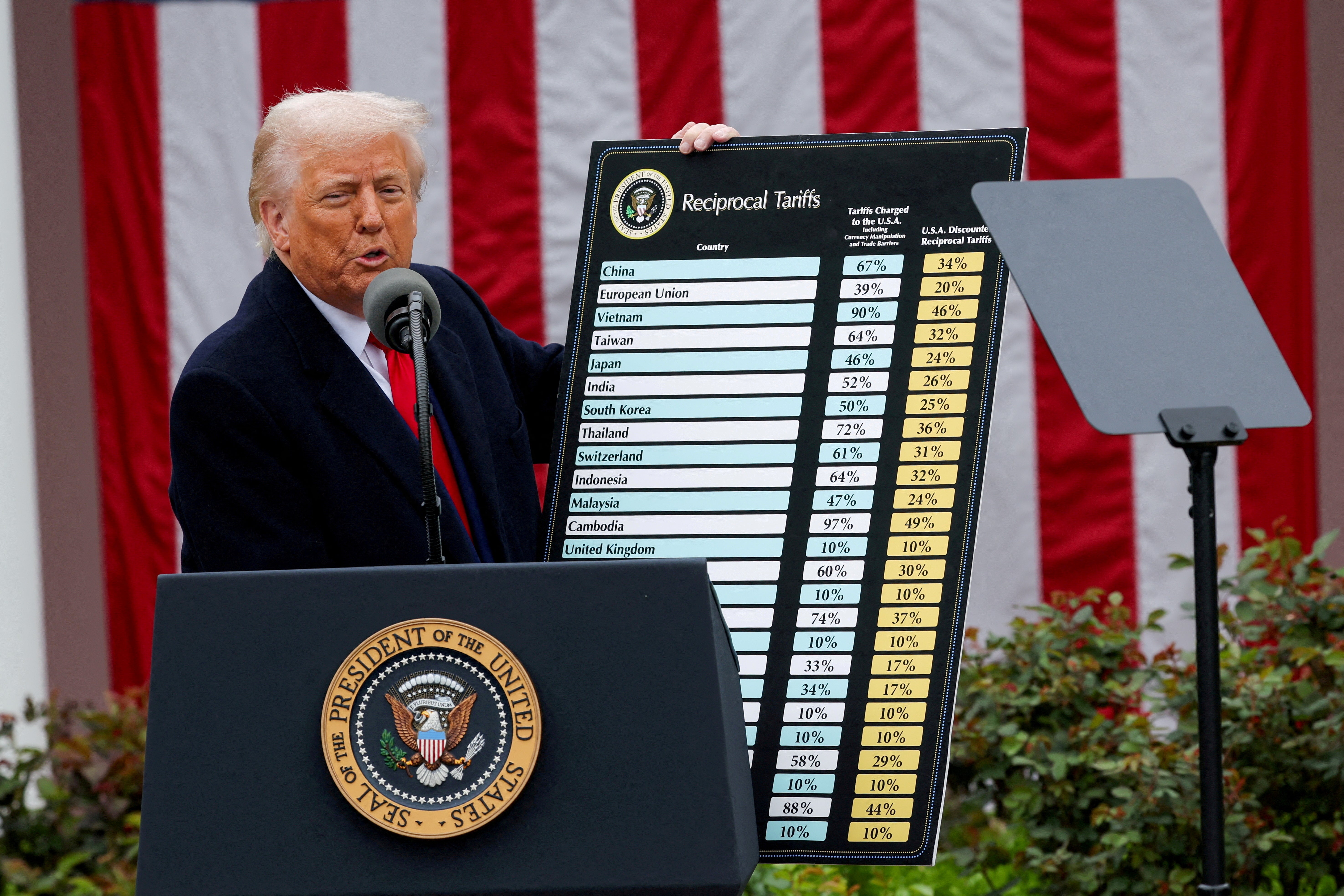Smartphones, computers, flash drives, semiconductors and solar cells will be exempt from the Trump administration’s wide-ranging tariffs on China and other nations, according to guidance from U.S Customs and Border Protection released late Friday night.
The policy is a boon to U.S. tech companies such as Apple, which produces most of its iPhones in China.
“This is the dream scenario for tech investors,” Dan Ives, global head of technology research at Wedbush Securities, told CNBC. “Smartphones, chips being excluded is a game-changer scenario when it comes to China tariffs.”
The exemption applies to goods headed toward the U.S. as early as last Saturday (5 April).
Tech CEOs courted Trump throughout his campaign and since he has taken office, with Elon Musk donating more than $290m to Trump and Republican-affiliated efforts, while Meta, Amazon, and Apple’s Tim Cook each gave $1m towards Trump’s inauguration.
Tech companies, and the net worth of their billionaire CEOs, were among those hardest hit when markets tanked on the tariff announcement. But, now Trump appears to be offering a helping hand by exempting some products from the 125 percent tariff he imposed on China.

A bundle of tech stocks such as Apple, Microsoft, Nvidia, Netflix, Amazon, Meta and Google parent Alphabet make up over a quarter of the value of the S&P 500 at any given time — and all of these companies would face major financial challenges if global electronics supplies were hit with sustained tariffs.
Friday’s announcement is the latest sudden adjustment in a tariff policy that’s changed every few days. Trump announced on Wednesday a 90-day pause on a series of “reciprocal” tariffs on U.S. trading partners that rattled financial markets, while increasing tariffs on China to an effective rate of 145 percent and maintaining a baseline 10 percent tariffs on all countries that hadn’t retaliated against the U.S.
“There could be a couple of exceptions for obvious reasons, but I would say 10 percent is a floor,” Trump said Friday on Air Force One.
Despite attempting to soften the financial blow of the tariff agenda, some fear the policies have set the U.S. on a course for a recession.
“I think we’re very close, if not [already] in, a recession now,” BlackRock CEO Larry Fink warned on CNBC’s Squawk on the Street on Friday.
Main Street consumers also appeared concerned about the economic impact. Americans spent more on certain foods and tech items like iPhones as they braced for Trump’s tariffs to take effect, according to data.







